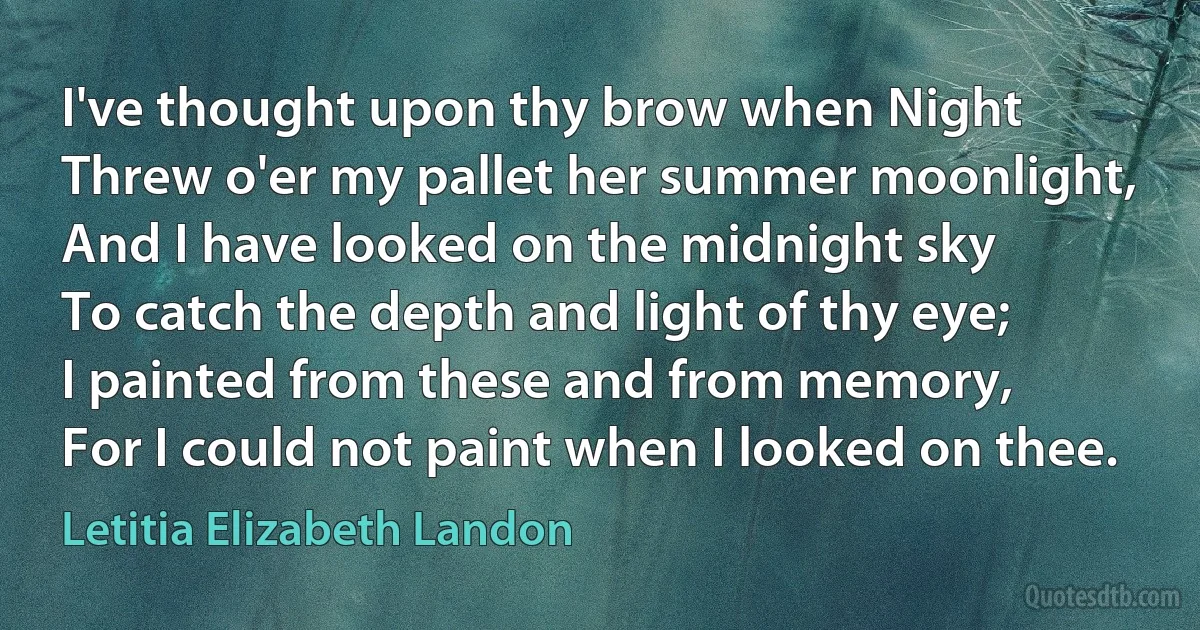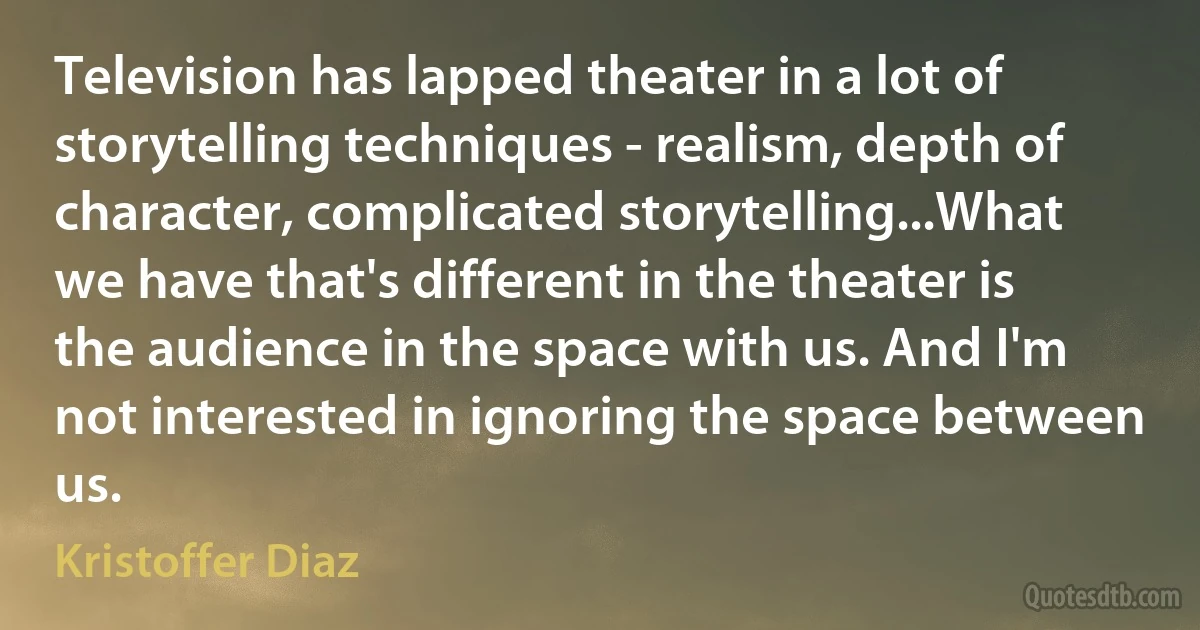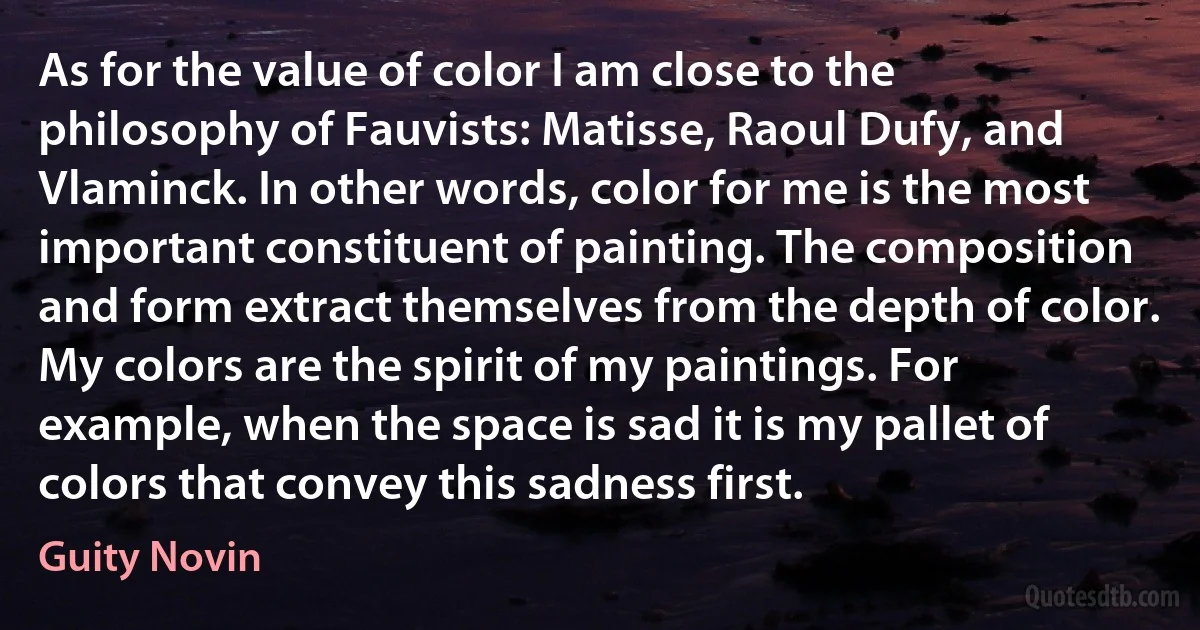Depth Quotes - page 19
You look at me, you look at me closely, each time closer and then we play cyclops, we look at each other closer each time and our eyes grow, they grow closer, they overlap and the cyclops look at each other, breathing confusion, their mouths find each other and fight warmly, biting with their lips, resting their tongues lightly on their teeth, playing in their caverns where the heavy air comes and goes with the scent of an old perfume and silence. Then my hands want to hide in your hair, slowly stroke the depth of your hair while we kiss with mouths full of flowers or fish, of living movements, of dark fragrance. And if we bite each other, the pain is sweet, and if we drown in a short and terrible surge of breath, that instant death is beauty. And there is a single saliva and a single flavour of ripe fruit, and I can feel you shiver against me like a moon on the water.

Julio Cortázar
No book is fairly judged till it is read twice, and at distant periods. It is curious to note the variation of taste in ourselves. I can remember I devoured the story keenly, dwelt on all that partook of sentiment, and never questioned the depth of any remark. I now find that I take chief interest in what brings out character. I enter more into the humourous, and am every now and then tempted to analyse the truth of a deduction. I think more over what I am reading, and delight more in connecting the world of fiction with that of reality.

Letitia Elizabeth Landon
There is a flower, a snow-white flower,
Fragile as if a morning shower
Would end its being, and the earth
Forget to what it gave a birth;
And it looks innocent and pale,
Slight as the least force could avail
To pluck it from its bed, and yet
Its root in depth and strength is set.
The July sun, the autumn rain,
Beat on its slender stalk in vain;-
Around it spreads, despite of care,
Till the whole garden is its share;
And other plants must fade and fall
Beneath its deep and deadly thrall.
This is love's emblem; it is nurst
In all unconciousness at first,
Too slight, too fair, to wake distrust;
No sign how that an after hour
Will rue and weep its fatal power.

Letitia Elizabeth Landon
I see myself immersed in the depths of human existence and standing in the face of the ineffable mystery of the world and of all that is. And in that situation, I am made poignantly and burningly aware that the world cannot be self-sufficient, that there is hidden in some still greater depth a mysterious, transcendent meaning. This meaning is called God. Men have not been able to find a loftier name, although they have abused it to the extent of making it almost unutterable.

Nikolai Berdyaev
Symptoms are meaningless traces, their meaning is not discovered, excavated from the hidden depth of the past, but constructed retroactively - the analysis produces the truth; that is, the signifying frame which gives their symptoms their symbolic place and meaning. As soon as we enter the symbolic order, the past is always present in the form of historical tradition and the meaning of these traces is not given; it changes continually with the transformations of the signifier's network. Every historical rupture, every advent of a new master-signifier, changers retroactively the meaning of all tradition, restructures the narration of the past, and makes it readable in another, new way.

Slavoj Žižek
As a nation we have, over the past seven years, been rebuilding our intelligence with powerful capabilities that many thought we would no longer need after the Cold War. We have been rebuilding our clandestine service, our satellite and other technical collection, our analytical depth and expertise.

George Tenet
The writer is a spiritual anarchist, as in the depth of his soul every man is. He is discontented with everything and everybody. The writer is everybody's best friend and only true enemy - the good and great enemy. He neither walks with the multitude nor cheers with them. The writer who is a writer is a rebel who never stops.

William Saroyan
I still, when I judge my own pictures (either while I'm working or after I think it's finished) determine if they work in a certain kind of space through shape or color. I think all totally abstract pictures – the best ones that really come off – Newman, Pollock, Noland – have tremendous space; perspective space despite the emphasis on flat surface. For example, in Noland a band of yellow in relation to a band of blue and one of orange can move in depth although they are married to the surface. This has become a familiar explanation, but few people really see and feel it that way.... in my work, because of color and shape a lot is read in the landscape sense..

Helen Frankenthaler
I think that for me any picture that works even if it is in the guise of pure color application, if it works, involved drawing. That is falt space on a flat surface. And for me, and I always say this, whether it's a Titian or a [Kenneth] Noland, the ones that come off work in that depth and the color perhaps it is divine and the thing that makes it work, but it is line color. If it doesn't work then it's decorative or dead or just applied colors on a surface. That's what wallpaper is. And that's the difference between the striped wallpaper and a great Noland.

Helen Frankenthaler
So I would say, blanket, from the time I was 17 until I was 20 [1945-48] when I graduated from Bennington [Art College] as far as painting went I had a depth analysis of what made Cubism work and its revolution, and all it opened up. And in history it was just the right moment to get it.... I did in my senior show two little pictures that are every bit as good, though I think ex post facto, nothing can be every bit as good ever - the way the best 'drip' Pollock made four years later than the best drip Pollock is not good -. But I could do Braque-s and Picasso-s that were angelic and completely understood, I mean really. I mean Paul [ [Paul Feeley ] really honored me and by that time it was a friendship, it wasn't a --. I mean our lives were in each other.

Helen Frankenthaler
The number one problem in academia today is not ignorant students but ignorant professors, who have substituted narrow "expertise" and "theoretical sophistication" (a preposterous term) for breadth and depth of learning in the world history of art and thought... Art is a vast, ancient interconnected web-work, a fabricated tradition. Overconcentration on any one point is a distortion. This is one of the primary reasons for the dullness and ineptitude of so much twentieth-criticism, as compared to nineteenth-century belles-lettres.

Camille Paglia



